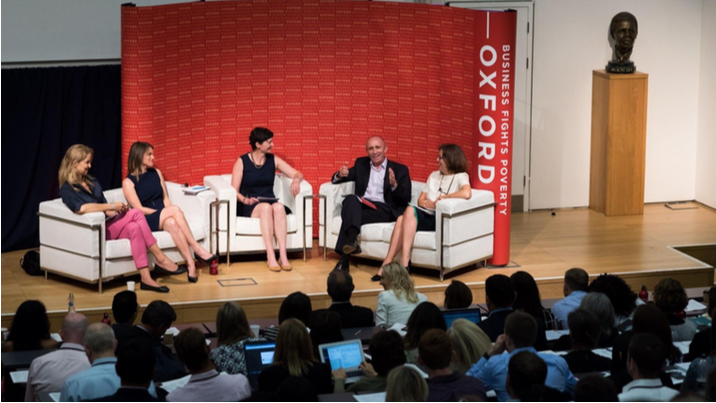By Rachael Clay, Director, Ethicore
What do experienced collaborators advise we prepare for the future of partnerships? Kate Wylie (Global Sustainability Director at Mars), David Croft (Global Sustainability Development Director at Diageo), Laura Kelly (Head of Business Engagement Hub, DfID) and Alex Lankester (Head of Corporate Partnerships at Oxfam GB) joined me to discuss this on a panel at the Business Fights Poverty Conference in Oxford this July. One thing is for sure – the scale of investment and challenge to achieve the SDGs is such that significant collaboration will be required.
Here are seven snippets of advice from our panel to prepare for the future of partnerships:
- Collaboration is complex and requires clear negotiated terms of reference and contracts. For example, The Livelihoods Fund for Family Farming (from Mars and Danone) involves contracting between multiple partners (>18), to provide upfront finance and technical support to farmers through a 120m Euro Fund.
- Multiple partners need to be bound together in mutual accountability. This requires trust, respect, transparency and a healthy helping of honesty. Our experienced collaborators advise partners to be clear about expectations, what you can and cannot deliver and to ‘out’ the problems.
- Bring your biggest and best assets to solve the fundamental challenges. For example, marketing budgets and know-how in business are immense and can positively influence social norms. Oxfam are working with Unilever’s Surf to lighten the load of women’s unpaid care work.
- Develop horizontal linkages between supply chains. Business can look at connections between their supply chains to help build sustainability for farmers, avoiding dependence on a single product. David described Diageo’s work with 6.5k smallholder farmers in Ethiopia , developing seed propogation routes in response to fragile livelihoods.
- Develop new partners to solve bigger problems. The Farmer Income Lab from Mars was launched to respond to the harsh reality that farmer incomes would need to quadruple to thrive and engage the next generation. This open source approach is a dramatically different route which aims to inspire at scale.
- Hold companies to account for their social impact. David calls for a policy environment that supports inclusive growth, joint investments in infrastructure, along with the responsibility to deliver and demonstrate social value. Laura is developing an iterative approach at DfiD’s Business Partnerships Facility to balance this agenda with the push for a Global Britain. The debate will continue about protection of society, public investment as well as corporate interest.
- Be positive and transparent about the impact of partnerships. Investors, shareholders and tax payers in partner countries need to see the positive benefits of partnership to maintain momentum for funding and initiatives. Kate Wylie made a plea for a consistent way of measuring social impact to reduce the burden on farmers.
The Business Fights Poverty Conference was held in Oxford on Monday 10 July, 2017.
Rachael Clay set up Ethicore in 2008 to help organisations have a bigger impact through insight, engagement and partnership. She has over twenty years experience working with business, NGOs and institutions. Rachael is expert in research, stakeholder engagement, facilitation, strategy and partnership.

